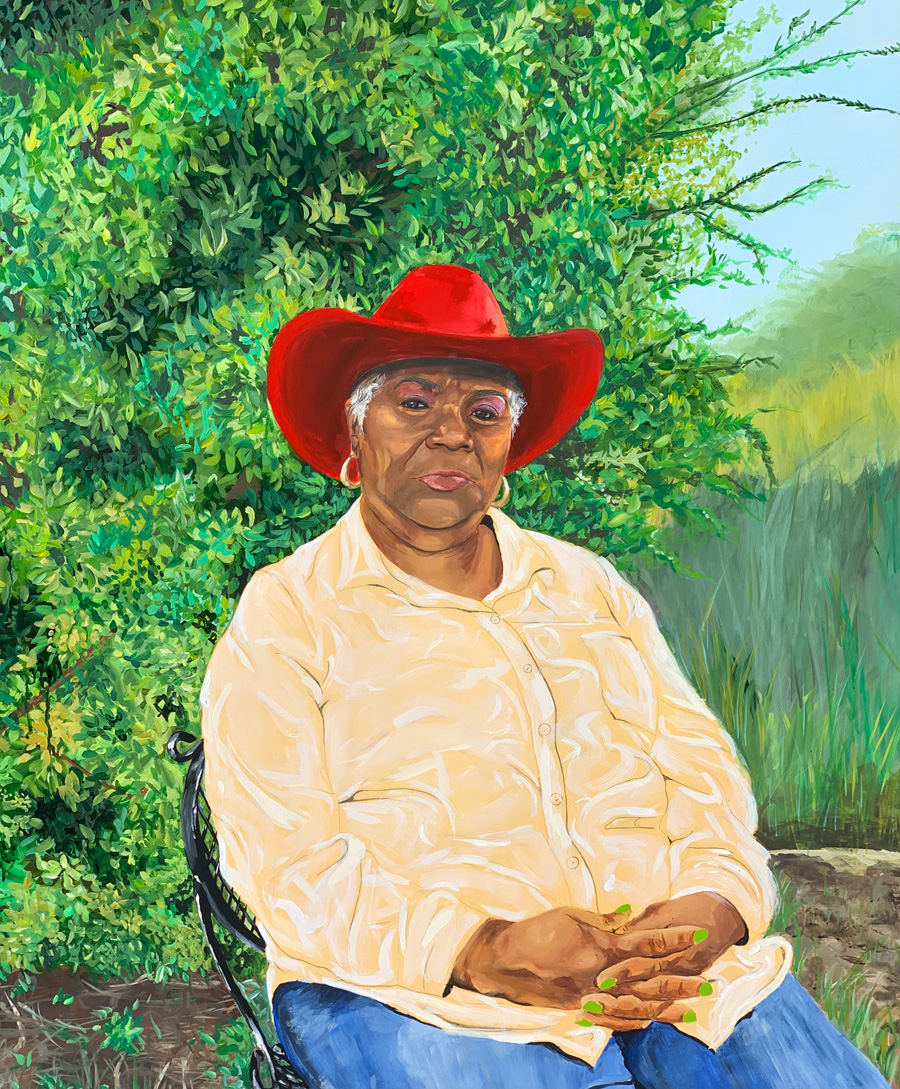For Brielle, painting women as her subjects has been natural practice for her since
the most influential people in her life have been women, including her mother, grandmother,
great-grandmother and her best friends.
"Various experiences we face as feminine people are so special and so challenging
and so unique in a lot of ways," she says. "I think it's always been something I've
been drawn to. It's like understanding our experiences as women."
Her latest piece is Poisoned by Zip Code, which brings together many of her interests. She says she enjoyed taking the time
to research a story that she feels is important to tell the public.
Featured as part of the Rooted exhibition in the Center for Creative Connections at the DMA, the installation focuses on Jackson,
who campaigned against a 6-foot high trash dump, called "Shingle Mountain," in her
neighborhood.
Brielle uses imagery from environmental racism from the 1980s to today.
"At the center of it is Marsha," Brielle says. "I think this tribute to her is a tribute
to what Black women do for social change."
Another artwork, Going Home, features six pieces depicting facets of her own life, from a family portrait in
front of a van to digital collages from her computer screen. It includes the portrait
of the mother and baby, which was her as an infant with her mother.
"The work was kind of born out me thinking a lot about my childhood and different
experiences that shape every part of who I am," she says. "My parents have been separated
since I was a baby, so it's interesting for me to see all these images and memories
of my life with my mom and her family and my life with my dad and his family all together
in conversation with each other."
The piece was featured as part of the 2021 Texas Biennial in San Antonio.
"It's been a great experience," she says. "There's so many artists I look up to. It's
surreal to be in the same space as them."

